Lolita Chammah: An interview with the star of Barrage
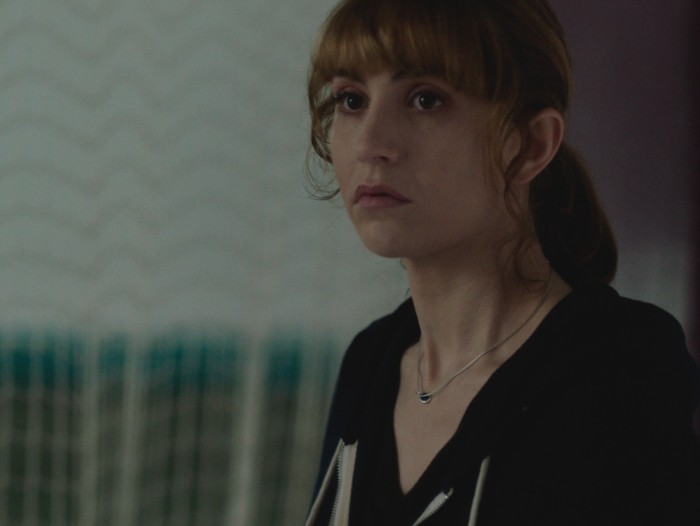
Although she’s an accomplished actress in her own right, Lolita Chammah is in fact the daughter of Isabelle Huppert, a true cinematic icon. Chammah has two films screening at the 2017 Berlin International Film Festival and they couldn’t be more different. Strange Birds is as light as a soufflé, which is in stark contrast to the emotional wallop of Barrage, in which she appears alongside her mother. We sat down with Chammah at the festival to talk about Barrage, and discussed growing up in a world of cinema and whether it’s strange for an actress to have your onscreen mother played by your actual mother.
Catherine is such a layered and complex character. Is this primarily what attracted you to her?
It’s a big dramatic role, I wanted to do this as an actress, and I always like characters with some fragility. So when you feel like she might break, I like this. Catherine is that kind of character: both a fragile mother and a fragile child. She’s always searching for something, looking for something. She’s trying a lot of things to make those around her love her. She’s both tough and soft, and I like to see these types of characters in cinema.
Most of your screen time is shared with Thémis Pauwels, who plays Alba, Catherine’s daughter. Is acting alongside a child any different to acting alongside an adult?
I like to work with children. They have something so open, so pure, and so true. And for this movie we needed this because it’s… how do you say it… face-à-face? (face to face). So it was fantastic. She gave me a lot and I gave her a lot. We really imagined we were mother and daughter. We rehearsed a little to do this, but not really a lot.
The nature of Catherine’s mental illness seems to be something along the lines of a Bipolar disorder, although this is never specified. Did you need to do any research to accurately portray the effects of mental illness?
I didn’t do any research, but that’s true – she has something like bipolar. We felt that in her past she was probably on drugs and in some kind of deep darkness, and that’s why she couldn’t take care of Alba. But now she’s coming back to life. We felt that she had a lot of darkness, but I didn’t work to think how to convey this actual illness. I thought she was borderline, and this interests me a lot. I didn’t think about anyone in particular. But life is like this; sometimes we are up and sometimes we are not, and this is easy to identify with. There’s also her difficulty in being a mother, and this is a taboo subject, but it’s something that’s very common, actually. And it can be beautiful to show this without judgement: a mother who didn’t know how to be a mother.
Catherine has problems with her daughter, and with her own mother. There seems to be a theme of daughters wanting to be free from their mothers in Barrage, but is this freedom possible for these characters?
I don’t think Catherine is really free from her mother. She went away, but she came back, and there’s that scene in the car where she tells her mother that she’s suffocating, so I don’t think she’s so liberated. And now with her relationship with Alba, she wasn’t ready to be a mother, but now she’s ready.
Your onscreen mother Elisabeth, is portrayed by your actual mother, Isabelle Huppert. What is it like to portray a mother and daughter when this in fact your real-life relationship?
She’s my mother and, I mean, of course, it’s a different feeling if someone else played the role. When we are on a shoot, we forget that we are mother and daughter, but also… we don’t forget. It’s a very particular thing. I think it’s important that things are going well on screen, and that we believe that Elisabeth is my mother, and we believe that Alba is my daughter.
You grew up surrounded by filmmakers and first appeared on screen at the age of five (in the 1988 film Story of Women). Have you ever considered making a break and doing something else?
Everybody talks about getting away from what they do, but I don’t know what else to do, because I really like it. My life is cinema, my life is this. But my life is not only this. I think it’s important for an actor to see yourself as other things. An open mind is very important when you’re an actor. So of course my life is cinema, but I try to see other things.
Barrage is a story of mothers and daughters, and it was directed by a woman. Could a man have ever directed this story in such a delicate way?
It is always complicated to answer something like this, but yes… It’s a women’s movie. Men could do something like this, but with men.
Oliver Johnston
Read our review of Barrage here.
For further information about the 67th Berlin Film Festival visit here.
Read more reviews from the festival here.













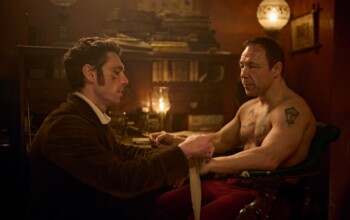
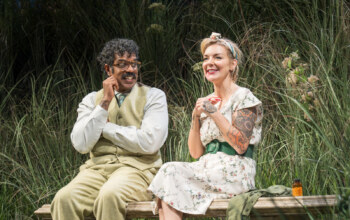
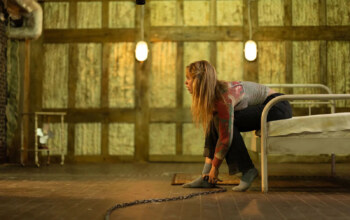

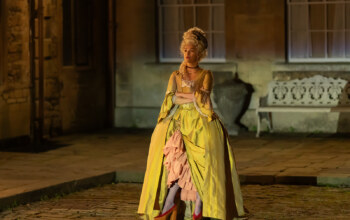

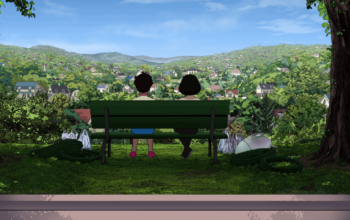





Facebook
Twitter
Instagram
YouTube
RSS